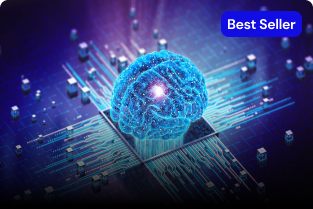As artificial intelligence (AI) continues to evolve, the boundaries between human capabilities and machine intelligence are becoming increasingly blurred. AI has already made remarkable strides, from chatbots that mimic human conversation to autonomous vehicles that can navigate the world with minimal human intervention. But could humans actually be integrated into AI systems in a more direct and fundamental way? This question invites a fascinating exploration of both technology and human nature.
The Concept of Human-Machine Integration
When we think about AI, we often envision robots or computer systems working independently of humans. However, a more intriguing idea is the potential for humans to work alongside, or even become a part of, AI systems. This could take many forms, ranging from enhancing human capabilities through AI-driven implants to creating a symbiotic relationship where humans and AI systems collaborate seamlessly.
One of the most promising areas in this field is neural interfaces. These are devices that connect the human brain directly to machines, allowing for direct communication between the two. Neural implants could enable humans to control AI systems with their thoughts or even enhance cognitive functions like memory and problem-solving. For example, Elon Musk’s company, Neuralink, is working on technology that aims to bridge the gap between the brain and AI, opening up possibilities for humans to interface directly with AI.
Cyborgs and AI Integration
The idea of humans becoming part of AI might sound like science fiction, but it’s not entirely out of reach. Cyborgs, or beings that combine biological and mechanical elements, have long been a staple of futuristic tales. In the real world, however, some scientists and engineers are already experimenting with cybernetic enhancements. These enhancements could range from simple prosthetics controlled by AI systems to advanced implants that augment sensory perception or brain function.
Take, for example, the development of prosthetic limbs controlled by AI. These devices can now move and function almost like natural limbs, allowing amputees to regain a level of independence they once lost. In the future, these prosthetics could be enhanced with AI to predict the user’s movements or even adapt to their environment in real-time.
Another area where AI and humans might merge is augmented reality (AR). By combining AR technology with AI, we could create a world where our perceptions are enhanced by intelligent systems, providing real-time data and insights that shape how we experience the world around us. In this sense, AI could become a part of our daily lives in ways we’ve never imagined.
Ethical Considerations and Risks
While the idea of humans integrating with AI sounds fascinating, it raises several important ethical questions. What happens when AI systems become too powerful? If humans begin to merge with AI, who controls these technologies, and how can we ensure they are used ethically? Will humans lose their individuality or free will by relying too heavily on AI systems?
There are also concerns about privacy and security. As humans become more connected to AI, there is a risk of hacking or exploitation of personal data. If our thoughts, actions, and memories are accessible by AI, how do we protect them from malicious actors?
Additionally, we must consider the social implications of AI-human integration. Will it create a divide between those who can afford AI enhancements and those who cannot? Could this technology lead to new forms of inequality or discrimination?
The Future of AI and Human Integration
Although we are still in the early stages of exploring human-AI integration, the future is promising. As AI technology continues to advance, we may find ourselves increasingly intertwined with it. Neural interfaces, prosthetics, augmented reality, and cognitive enhancements could become part of everyday life, blurring the lines between biological humans and intelligent machines.
However, it’s essential that we proceed with caution. While the potential for AI to enhance human abilities is exciting, we must ensure that ethical standards are in place to protect individuals and society as a whole. The integration of humans and AI could revolutionize our lives, but it’s up to us to shape this future responsibly.
In conclusion, the idea of humans becoming part of artificial intelligence is no longer just a concept from science fiction. With the rapid pace of technological advancements, it is becoming increasingly plausible. However, as we venture into this new frontier, it’s crucial that we approach it with thoughtful consideration of the ethical, social, and philosophical implications. The fusion of humans and AI could be a transformative step in our evolution, but only time will tell what kind of future it will create.

